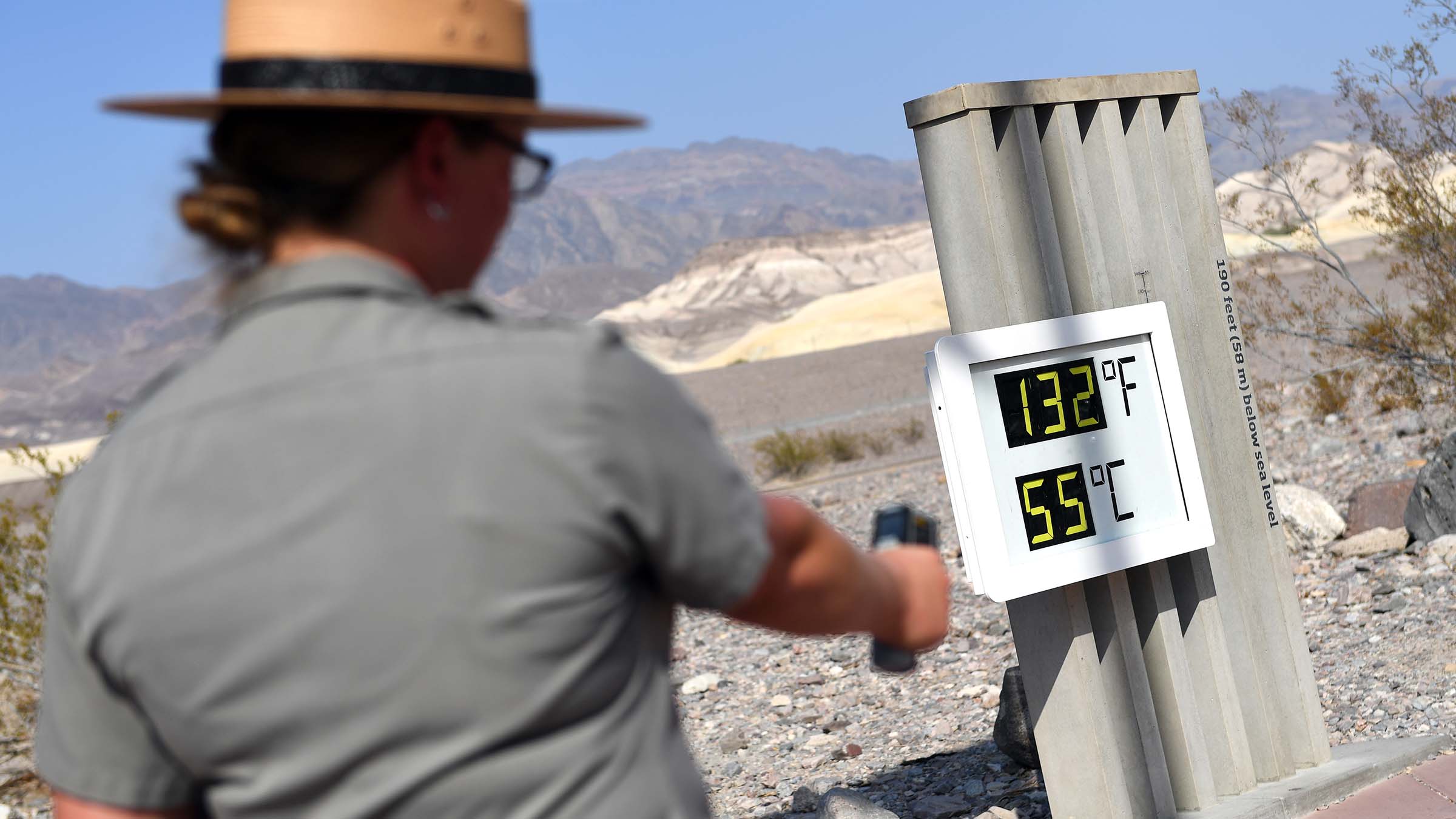July 2021 Was the Hottest Month in Recorded History

United States Park Ranger Jeannette Jurado takes a surface temperature reading from an unofficial thermometer reading 132 degrees Fahrenheit/55 degrees Celsiusis at Furnace Creek Visitor Center on July 11, 2021 in Death Valley National Park, California. (Photo: David Becker / Stringer via Getty)
If it felt hotter than usual to you on the trail this July, you’re not just imagining things: According to a new report from the National Oceanic and Atmospheric Administration, last month was the hottest in recorded history.
In a press release, NOAA said that Earth’s ocean and land temperature last month was 1.67 degrees Fahrenheit over the average for July in the 20th century, and edged out the prior record by .02 of a degree. That previous record wasn’t very old, either: It was set in 2016, and then tied in both 2019 and 2020.
According to NOAA, it is now “very likely” that 2021 will be among the top 10 hottest years ever recorded.
“In this case, first place is the worst place to be,” NOAA Administrator Rick Spinrad said. “July is typically the world’s warmest month of the year, but July 2021 outdid itself as the hottest July and month ever recorded. This new record adds to the disturbing and disruptive path that climate change has set for the globe.”
Compared to some other parts of the globe, the contiguous United States got off relatively easy. It recorded its 13th-hottest July ever, while Asia had its hottest-ever July, Europe its second-hottest, and North America at large its sixth-hottest. However, parts of the country still experienced unprecedented heat: Portland shattered its all-time heat record with a 116-degree day as a heat wave gripped the Pacific Northwest. Meanwhile, Death Valley National Park reached 130 degrees, matching the highest temperature ever recorded on Earth with modern instruments and falling just four degrees short of the official record set in 1913.
Park managers around the United States have rushed to respond to the sweltering temperatures this summer. After a dozen rescue workers suffered heat illness while rescuing stricken hikers, Phoenix, Arizona officials announced on July 16 they would begin closing local trails when the mercury climbed too high to be safe. Hikers died of suspected heatstroke in Grand Canyon National Park, Anza-Borrego Desert State Park, and on the Pacific Crest Trail. In a demonstration of just how severe the heat was, National Park Service staffers in Arizona’s Saguaro National Park baked chocolate chip cookies on the dashboard of a parked car.
NOAA’s announcement comes on the heels of the release of the Intergovernmental Panel on Climate Change’s latest report on global warming, which found that the world is likely to reach 1.5 degrees Celsius (2.7 degrees F) of total warming over pre-industrial levels by the middle of the 21st century, which the organization predicts will result in serious impacts to agriculture, food security, human health, and water supplies. But the report also contended that if humanity can reach net zero carbon emissions, we could see the worst effects of climate change begin to reverse.